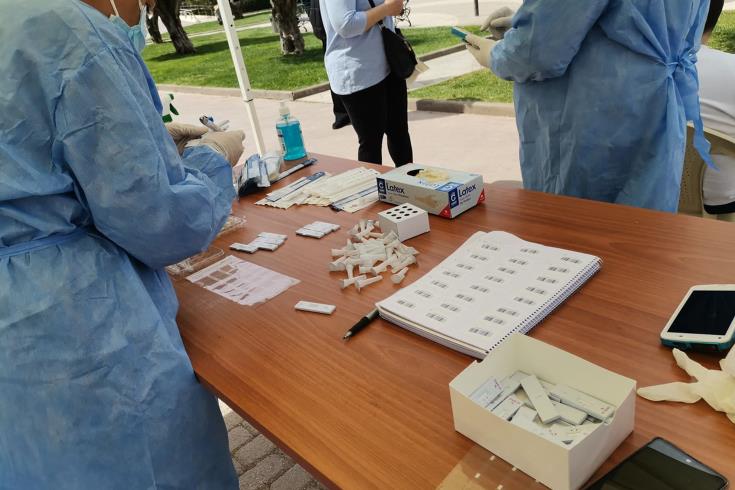Scientists advising the government on COVID-19 do not want to see free rapid testing abolished from Sunday.
They argue termination of free testing programs will jeopardise efforts to contain the spread of the virus, as tracking new cases and their contacts will become harder.
Members of the Health Ministry’s track and trace team have repeatedly complained of a significant backlog.
Talking to state radio CyBC, Dr Maria Koliou, a scientist advising the government on COVID-19, said the program should continue with a minimum of 30,000 to 40,000 tests daily.
The expert was asked to give her colleagues take on the government’s decision to scrap mass free testing as of 1 August.
“We will need to have a sample of tests from the community to have a picture of the spread of the virus.
“With such an aggressive variant, as the Delta variant, spreading in the community, we need to have a clear picture of what is happening on the ground,” said Koliou.
The experts have exchanged views with Health Minister Michalis Hadjipantelas, with media reports saying most scientists oppose the government’s decision to scrap free testing.
The World Health Organisation has also urged governments to step up free tests to stem the spread of the more aggressive Delta variant.
However, the government appears adamant about keeping its original decision taken on 2 July to end them.
Hadjipantelas reaffirmed the government would proceed with the scrapping of free coronavirus rapid tests, despite protest by unvaccinated people required to pay to receive a Safe Pass.
He argued that rapid testing programs cost the state €6 mln a month, and this money could be channelled to state hospitals handling the outbreak.
The government is looking to fix glitches with the implementation of the Safe Pass, needed for citizens to gain access to busy indoor and outdoor facilities such as restaurants, cafes, and concerts.
Meanwhile, epidemiologists have looked into whether children aged 12 to 15 will need to get vaccinated.
Dr Koliou, a paediatrician, said there is no consensus on the matter.
She said Cyprus would probably wait for the outcome of clinical trials and mass vaccinations taking place in child populations in other countries.
“However, we have seen cases of children with serious symptoms from COVID being treated in hospital.
“This comes as no surprise as the Delta variant has proven to affect children more than the original virus.”
She said scientists feel that teenagers could get vaccinated to allow them to attend school after two turbulent years physically.










